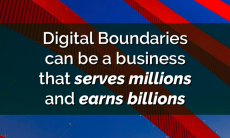What do you think you look like in the mirror? I am sure what you see in the mirror is an idealized version of yourself. Maybe who you were in your wedding album instead of the paunchy 50-year-old you’ve become — and to maintain that myth, you’ve thrown away full-body mirrors and only take selfies from overhead. The mirror can be brutal but we’re all able to see what we want to see. And, though we try to curate our brand by doing the equivalent of lying about our height and posting a ten-year-old photo on Match.com, the Internet’s mirror is full-length and in HD: not only warts and all but yes, those jeans do make your ass look big.
Google’s the worst boyfriend in the world!
However, Google’s reflection isn’t a personal slight, it’s simply an emergent fractal representing how people actually search — for you — and not how you want them to. No matter what I do, I can’t even make my best friends associate me with being a worldly polymath maverick studmuffin even though that’s what I see when I look in my own mirror. What they say, more likely, is a nice, generous, heavy-set, middle-aged boy-man. I can see that, alas, for shame; I can work with that; however, I couldn’t always make the leap between the concept myself as the next James Bond and the dorky uncle Chris I have become. I really love Uncle Chris, but it was a rough adjustment.
And it won’t be easy for you, either.
I once had an opportunity to work with an OD consultant named Bob Gallagher who hammered the following truth into my head until I finally accepted it: your company, organization, and congregation has its own personality, its own Myers-Briggs, and its own reputation — a reputation that may not be in your image, even if it is genetically linked to your passion, sweat, expertise, and brilliance. Like all children, all brands, including your own personal brand, evolve outside of your control and oftentimes well outside your comfort zone.
As an aside, I remember back to when I wrote very bad poetry. I was that guy in college, an English Major, Creative Writing Minor, and I published in the college journal and routinely did readings. One of the most important aspects of writing poetry is releasing it into the wild: after you publish or speak the words they rampantly mutate into not what I, the author, intended, but rather what the reader, instead, understands. And that often sucks, if you’re too attached to what you intended to convey. Just remember, some of the best documents in the world have been shamelessly interpreted: The Bible, The U.S. Constitution, Catcher in the Rye, Thus Spoke Zarathustra, your website, and your business.
You can’t control your brand perception. And you don’t want to. Because obviously you can completely control your own reputation — just don’t put yourself out there, yank all of your sites, shutter your corporate web site, close your blog, and kill all that social. Even so, you’re not the only person who can define you in the Internet age.
Anyway, let’s get back to Google’s mirror.
You can’t force your will or your perception of yourself onto Google no matter how big your advertising budget — sorry. And, now, you can’t do it through writing big checks to black hat link farms, either.
So, if you want to make sure you can control as much of search as humanly possible, you’re going to need to write about yourself and your company as thoroughly as humanly possible — and, part of that is doing the equivalent of a 360-degree feedback of your own brand, your own corporation. For those of you who don’t know, a 360 review represents feedback that comes from members of an employee’s immediate work circle. And, like the 360, you should ask people outside of just yourself and your board how they perceive you.
When they think about you, what do your customers, your competitors, your clients, and your employees think? What descriptors, what keywords, what phrases? Look online at people in your space — your competitors as well as who you’d like to become — and shamelessly explore their HTML source code and steal their meta keywords and the language they use.
I am not saying that you’re not creative or are completely derivative or anything else, but you’ve been in your space for a long time and you’re probably still using all the same language that you’ve used for years and years. I know that was my problem. I started my company back in 2006 and then never evolved with the market. I kept on calling what I did “new media” and never kept current as it became “social media marketing” and then became “digital PR” (and who knows what it is right now… has it become “content marketing”? Really?).
Plus, every brain listens, learns, and creates differently. So, the more you dig around to see how other people — both within and outside your organization — describe you, your company, products, and services, the better. Then steal it and use it. Some hints: how do your employees describe your company and their job on their LinkedIn, Google+, and Facebook profile? How do they describe what they and you do in their official CV, resume, and bio? Use it all, build it all in there.
Yes, there’s some work involved. And you need to do it without judgement — especially when the sort of keywords that people in your 360 don’t remotely get you. Does your mom really get what you do? Most of your clients won’t — they’ll just know they need something to do with reputation, with social media, with Twitter, Facebook, LinkedIn, or blogs. What kind of silly things do all the people in your daily life well outside of your professional bubble, your echosphere, think you do?
If they needed your help, how would they find you? Would they look you up by name? Would they think you are an IT guy? A computer guy? (I’ve heard it all, I have been called a programmer, an IT guys, a computer guy, a technologist, and any number of things).
Don’t fight it. Don’t. It’s actually most excellent intelligence. The best. You can use this — and it can help you make your way back to the top of Google organic search if you play your cards right.
And here’s the secret: cover all your bases. Write lots of copy with all variations of all interpretations of all the keywords your 360 interviews have provided you with, and then do it again and again and again and again. And keep on writing and keep on producing and keep on writing this content onto your site and over your properties as often as possible and for as long as you possibly can. And, please don’t forget: while you may well have taken an accurate snapshot of the comprehensive array and full bouquet of all the keywords as they exist the day you captured them.
Remember: you must periodically and persistently commit to updating your talking points, your keywords, and your conversation to reflect in as realtime as possible the mirror that is your time, your place, and the market perception of who you are and what you do.
It’s not easy, either. it’ll take some work to get the reflection right. To make the mirror clear. You surely need to ask for help. While Google killed their Google Adwords Keyword Tool in favor of their lame Keyword Planner, dorking around with keyword tools still doesn’t allow you to get a real feel for what other people say and think about you, really. You need to do your own market research, your own polling. Not even Bing Keyword Research will allow you to get outside yourself.
I have been listening to Reinventing You by Dorie Clark on Audible.com. Her book is all about packaging and repackaging yourself in order to either sell yourself into a different market or to reboot yourself to take it to the next level in the market to which you’re committed after you’ve stalled or plateaued.
Reinventing yourself and your brand demands that you stop doing the same thing over and over again expecting the same outcome (Albert Einstein). Get past that and move forward and try something new. Hire some content people, come community managers, and spend some serious time participating instead in singing yourself out to the world.
The new Google may well have cut off all of your SEO shortcuts (just run your credit card and you’ll be on the top of Google search, pay here) but there are now many most excellent opportunities for all of you who have more talent than treasure, more time than money; and, if you only have treasure, it’s the perfect opportunity to spend your money on some serious talent — and I don’t mean more SEO consultants, either.
People are paralyzed in the wake of Google’s aggressive changes to its search engine algorithm. While the panic and pandemonium seems to be contained outside of the public eye, there are quite a few ecommerce sites who are on the verge of shuttering because these changes have collapsed the (dodgy) house of cards that (dodgy) SEO consultants built in the form of buying and selling text links, ordering high-page-rank links out of a catalog, making partnering agreements with text link buyers and sellers, and any number of other (dodgy) link strategies. No judgement here, actually, because until last year, most of those house-of-cards were super-saturated with the SEO equivalent of Royal Flushes, Four of a Kinds, and Full Houses — no matter how loudly Henny Penny Google cried “the sky is falling.”
Well, the sky really started falling in earnest last year; and, to many who relied solely on SEO hacks, tricks, and black hat techniques, the sky has fallen.
Like I said, all of these techniques did work. But they don’t work very well any more and it’s getting worse. Google keeps on loosening the noose a little every couple months in response to very powerful, influential, and wealthy web patrons, but this reprieve isn’t going to last much longer.
It’s time to shift your budget, it’s time to move past running big PayPal and Credit Card payments into the big gray- and black-hat black box and start spending your time, talent, and treasure on content-creators, community managers, social media managers, and a board of directors for search and social media — you won’t regret it; however, you also won’t even begin to see a return on investment for at least six months (sorry).
Good luck, foot soldier!
Related articles
- A Revival of the Meta Tag (covario.com)
- 18 Meta Tags Every Webpage Should Have in 2013 (iacquire.com)
- 6 Ways Small Business Owners Can Get More From Their SEO (business2community.com)
- A Visual Guide to Keyword Targeting and On-Page Optimization (moz.com)
- Sony reveals its own Chromecast-like BRAVIA Smart Stick device (venturebeat.com)
- How to Do SEO the Right Way (business2community.com)
- SEOcean: Keep Your Head Above Water (benchmarkemail.com)
- Google’s Redesigned Logo Mirrors Apple’s iOS 7 (AAPL, GOOG) (benzinga.com)
- From Keywords to Contexts: the New Query Model (clixto7.com)
- Mirror mirror on the wall…. (bababooandme.wordpress.com)







